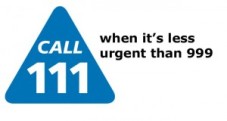
It’s been a tough couple of months. 2 very close friends have lost loved ones and 2 family members have died. 2 of them young woman in their 50’s losing their life to that horrendously awful disease CANCER. Every single one of them leaving behind broken-hearted family and friends.
I have shared their journeys through the caring for their loved ones and it saddens me to hear that they had many battles along the way. Getting much-needed appointments, lack of communication between different organisations and sadly just not enough resources in the NHS to assist them in their caring. But also, the many different positive stories they shared about the many different GP, hospital staff and voluntary organisations that often helped make the day that bit better for their professionalism and caring natures.
Often when someone is ill, especially terminally life is very hard on the people caring for them. They often have very little support or no support at all. One of the carers had to give up their job to care for their wife so he could accompany her to the many appointments for chemotherapy and radiotherapy and to the many visits to A&E and the GP. They had to be the “strong ones” Every single bit of help for them (the carer) goes a very long way in their fight to give their loved one the best possible care that they can………………but they need support from so many other organisations to be able to do this.
The carers often get worn down, quickly feeling low or even getting depressed and often face financial difficulties. Who cares for the patient if the cater gets ill?
Attitude, communication, empathy, time, and listening skills don’t cost a lot but can be invaluable to the carer – and the patient.
If you are aware of such a carer needing a doctor’s appointment please communicate, have empathy and use your listening skills. Try and accommodate an appointment that will allow them to fit in around the caring that they are doing. They might find a telephone consultation easier. Some carers are worn down by the sheer volume of the day-to-day caring and fighting for their loved one. When it comes to them seeking attention for themselves they just don’t have the fight in them anymore. You need to be their “fight” When someone is watching their loved one suffering in pain, they don’t need any extra pressure.
When I was a Receptionist I was often faced with terminally ill patients. People that were caring for loved ones with terminal illnesses and often them needed to be treated as a patient due to the stress of being a carer.
I still remember the first time I dealt with a family member who had just lost their loved one to cancer. They came into the surgery to collect the death certificate. This was the first time that I had ever come face to face with someone who had just had a death in their family. I was lost for words. I didn’t know what to say, so I said nothing and I felt bad for this afterwards. I just didn’t know what to say. I didn’t want to upset the person.
I also was “surprised” at how some people behaved when then had just lost a loved one. Some would appear to be “happy” even cracking jokes, some would come in and were obviously very upset, some would come in and wanting to blame someone for the death of their loved one, others would just act as if nothing had happened.
I had the opportunity to go on a bereavement training session and this explained so much to me. It taught me why people react to death in many different ways.
The training explained the different emotions that people might be going through immediately after the death.
Shock: It may take you a long time to grasp what has happened. The shock can make you numb, and some people at first carry on as if nothing has happened. It is hard to believe that someone important is not coming back. Many people feel disoriented – as if they have lost their place and purpose in life or are living in a different world.
Pain: Feelings of pain and distress following bereavement can be overwhelming and very frightening.
Anger: Sometimes bereaved people can feel angry. This anger is a completely natural emotion, typical of the grieving process. Death can seem cruel and unfair, especially when you feel someone has died before their time or when you had plans for the future together. We may also feel angry towards the person who has died, or angry at ourselves for things we did or didn’t do or say to the person before their death.
Guilt: Guilt is another common reaction. People who have been bereaved of someone close often say they feel directly or indirectly to blame for the person’s death. You may also feel guilt if you had a difficult or confusing relationship with the person who has died, or if you feel you didn’t do enough to help them when they were alive.
Depression: Many bereaved people experience feelings of depression following the death of someone close. Life can feel like it no longer holds any meaning and some people say they too want to die.
Longing: Thinking you are hearing or seeing someone who has died is a common experience and can happen when you least expect it. You may find that you can’t stop thinking about the events leading up to the death. “Seeing” the person who has died and hearing their voice can happen because the brain is trying to process the death and acknowledge the finality of it.
Other people’s reactions: One of the hardest things to face when we are bereaved is the way other people react to us. They often do not know what to say or how to respond to our loss. Because they don’t know what to say or are worried about saying the wrong thing, people can avoid those who have lost someone. This is hard for us because we may well want to talk about the person who has died. It can become especially hard as time goes on and other people’s memories of the person who has died fade.
The training was excellent and I would really recommend if such a training course becomes available. I understood and was able to deal with bereavement a lot better. I was also able to communicate better, had empathy and my listening skills often came into good use. I felt I made a difference. I was more confident to talk to people and ask how they were coping and make sure that I did everything in my power to make their visit to the Surgery went as smoothly as possible.
People often appreciated this, and would often say that I would be the first person that day that had acknowledge their loss.
Being recently bereaved can often be a very lonely place.
When I was a manager I instigated a Special Needs Board – this was extremely helpful to Reception staff when it came to identify patients that had just died or were terminally ill.
See blog post: Special Needs Board http://t.co/wnWKmxHV
As a Receptionist, its important how you react to someone who has just had a bereavement. Knowing that this person might have needs (especially if they are a patient) and how you can make such a great impact on them.
How you treat them can give a lasting impression. Make it a good impression and not a bad one.























 The guest post today is from someone I don’t personally know, but with her permission I would like to share it with you, and to stress how important it is to keep patients informed when the Doctor or Nurse is running late. Quite often patients are not annoyed at the delay in their appointments, it the “not knowing and lack of communication” that can quite often bring on frustration and anger.
The guest post today is from someone I don’t personally know, but with her permission I would like to share it with you, and to stress how important it is to keep patients informed when the Doctor or Nurse is running late. Quite often patients are not annoyed at the delay in their appointments, it the “not knowing and lack of communication” that can quite often bring on frustration and anger.